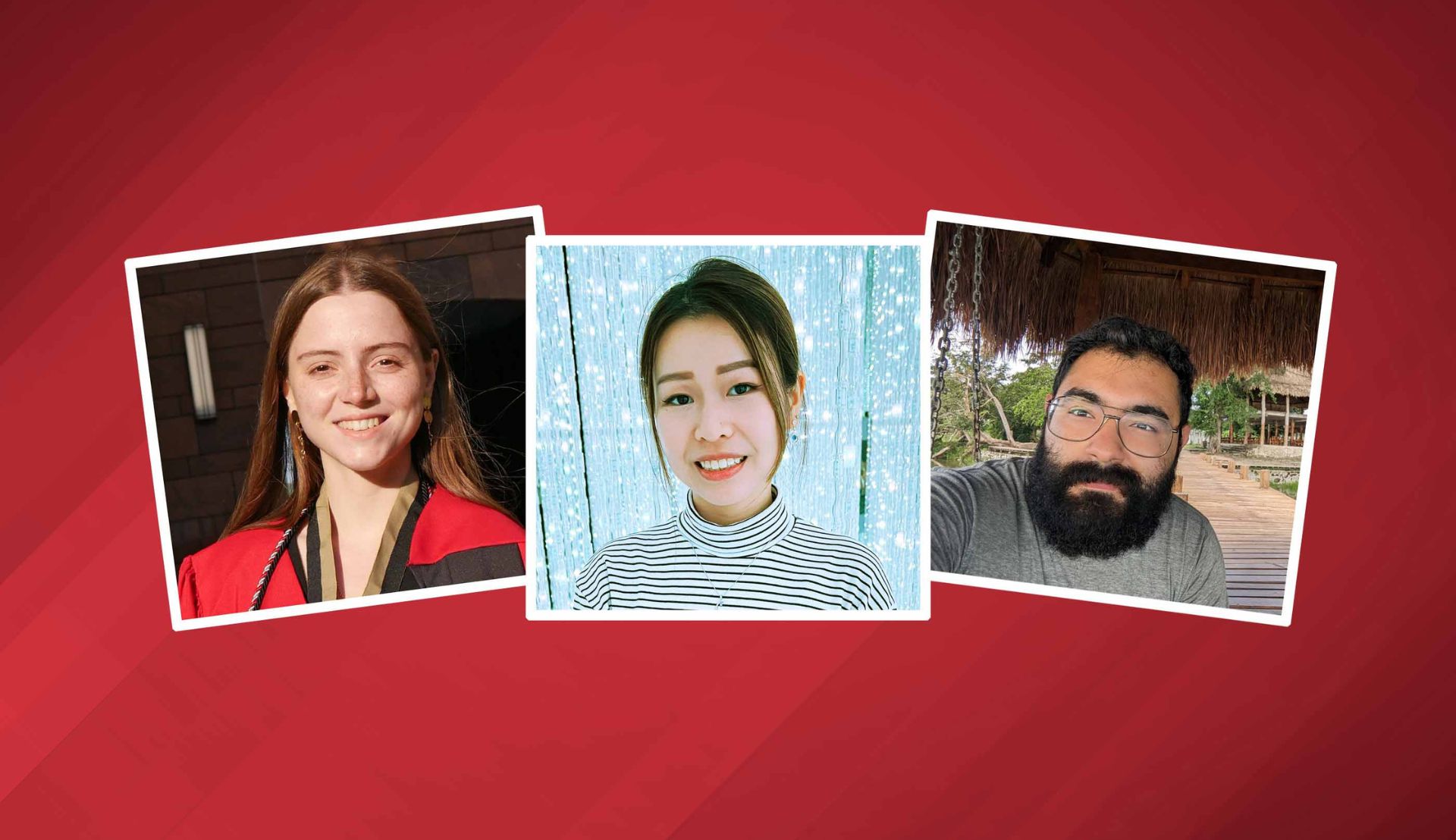A total of 12 from Rutgers were offered awards from the U.S. international educational exchange program
Rutgers University–New Brunswick again has been named a top producer of the Fulbright U.S. Student Program, a distinction announced by the United States Department of State’s Bureau of Educational and Cultural Affairs and recognized in the Chronicle of Higher Education.
The university produced 12 Fulbright students this year, including recent college graduates and students attending the School of Graduate Studies and Robert Wood Johnson Medical School. The recognition is shared by some of the nation’s most elite institutions, including Princeton University and Harvard University.
“Once again, Rutgers is pleased to be among our renowned peers as a prolific champion of Fulbright students, and I am excited to see what our latest outstanding recipients pursue through their international grants,” said Rutgers President Jonathan Holloway.
Under this year’s awards, students conduct research, teach English and advance their education at host institutions in Brazil, the Czech Republic, France, Germany, Ghana, Greece, Mexico, Peru, the Slovak Republic and Taiwan.
The Fulbright program is the U.S. government’s flagship international educational exchange program. Top producer status is given to colleges and universities in the U.S. that received the highest number of applicants selected for the Fulbright U.S. Student Program and requires schools to have at least 10 students who have been offered Fulbright grants.
The university’s latest round of Fulbright recipients includes Leonardo Calzada, a doctoral student studying geography at Rutgers. He is researching the historical and current forest transition in southern Mexico affected by government policies, land management, asymmetric power relations, biophysical aspects and socioeconomic models.
“It's a huge honor, a very competitive fellowship and award,” said Calzada, who was born in Texas but grew up in Mexico. “When you start making connections and producing a new network with people outside of your discipline, suddenly that is when you get the real perspective about how important the Fulbright is.”
Calzada, who earned his bachelor's degree in biology and master's degree in biological sciences at the National Autonomous University of Mexico, worked for the Mexican government as a deputy director of communication and dissemination of biotechnology and biosafety for the National Council of Science and Technology. He saw an “academic pathway” at Rutgers–New Brunswick and applied to the university.
“For me it was just trying to understand how public policies are made and kind of disputed inside and outside of the government,” said the 31-year-old, adding that “the geography department at Rutgers is pretty focused on human and critical perspectives.”
Administered by the Institute of International Education, each of the roughly 2,000 Fulbright grants issued annually cover the cost of a student’s travel, housing and living expenses for a year in the nation where they will be teaching or studying.
“Rutgers-New Brunswick has enjoyed Fulbright top producer status for the better part of two decades,” said Rutgers-New Brunswick Chancellor Francine Conway. “This reflects the brilliance of our students, the quality of our world-class academics and the support systems that help students reach their full potential.”
The university has been a top-producing Fulbright school 14 times in the past two decades, with more than 300 Rutgers–New Brunswick students honored since the scholarship began more than 75 years ago. Of 12 awards offered to Rutgers students this year, nine were accepted.
One Fulbright recipient, Julianna Johnson, is in Chiayi City, Taiwan. The 22-year-old, who graduated in 2023 from the Rutgers School of Arts and Sciences Honors Program with a major in Chinese and a minor in mathematics and business administration, is working as an English teaching assistant at two under-resourced middle schools in Taiwan.
“It was a huge honor to receive the scholarship and I am grateful to the U.S. State Department and Taiwan Fulbright to have the chance to live and work in Taiwan,” said the Cherry Hill, N.J., resident. “I understand that this is a once-in-a-lifetime opportunity and I appreciate all the support I received from my professors and deans at Rutgers who helped me achieve my goals.”
Johnson, who attended National Cheng Kung University in the Taiwanese city of Tainan as recipient of the Boren Scholarship and the Benjamin A. Gilman International Scholarship in the summer leading into her senior year, called studying abroad an “amazing growth opportunity.”
“Other than learning the language, there is also unexpected personal growth and development that happens when you are living fully immersed in another culture – from navigating daily activities to learning to be independent and building relationships within the community,” Johnson said. “It gives us a new appreciation for our own culture and the chance to develop new skills.”
After completing her Fulbright assignment, Johnson said she will seek a position with the U.S. Department of State “in a business or academic setting where I can utilize my language skills to be a bridge between the U.S. and Mandarin-speaking countries.”
Alice Militaru – a Fulbright recipient who works with high school students as an English teaching assistant in Aulnay-sous-Bois, a town in the northeastern suburbs of Paris – said she wanted to study abroad in France for years but had to put her plans on hold because of the COVID-19 pandemic.
“Studying abroad exposes you, not only to a new culture, but to new opportunities,” said Militaru, a Closter, N.J., resident who graduated from Rutgers–New Brunswick in 2023 with a major in marketing and French and a minor in political science. “I spent years studying French, but it wasn't until working in France that I was truly able to use the language.”
The 22-year-old added that her year abroad has opened the possibility of working in France or elsewhere in Europe in the future.
Militaru, who hopes to attend law school, added: “I'm very grateful to the Franco-American Fulbright Commission and proud to be one of the English teaching assistants in France this year.”
Photo: Alice Militaru (left), Julianna Johnson and Leonardo Calzada are among Rutgers–New Brunswick's latest Fulbright recipients.
This article originally appeared in Rutgers Today.

